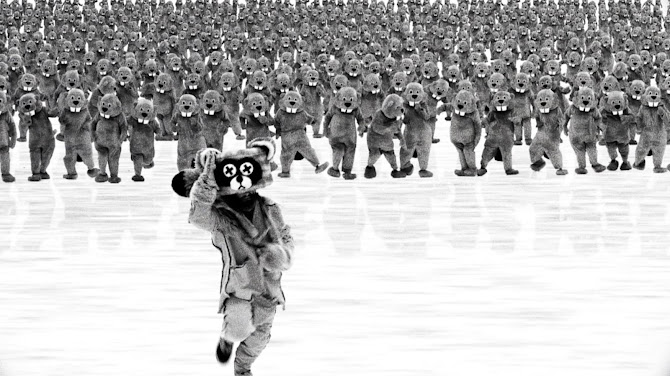Title: Hundreds of Beavers
Year: 2024
Director: Mike Cheslik
Country: US
Language: English
In an era where Cinema has become increasingly less subtle in the messages each film wants to convey, it's nice to get a back-to-basics Silent Era slapstick comedy that has no agenda, other than to be absolutely hilarious. No, Hundreds of Beavers is not a raunchy 80's comedy, it is Looney Tunes meets Chaplin meets Monty Python. It is an energetic, imaginative, mythical film that is completely distinctive from any other film you will see this year.
In this 19th century, supernatural winter epic, a drunken applejack salesman (Ryland Tews) must go from zero to hero and become North America's greatest fur trapper by defeating hundreds of beavers.
What is thrilling about Hundreds of Beavers, is the film's willingness to be creative and innovative; establishing its own rules in order to subvert audience expectations. The film does a tremendous job at setting up jokes, building up the suspense, and then paying it off. Every scene felt filled to the brim with humor, which made the overall story more compelling to watch.
This is an independent film with a shoestring budget, but it looks better than films made by a major Hollywood studio. Its sound design, score, set design and editing were notably impressive. Hundreds of Beavers is a very detailed film that looks like it required an enormous amount of storyboarding and pre-production planning to achieve.
Some audiences may find Hundreds of Beavers repetitive, but I found myself captivated by the story and intrigued by its Road Runner-esque logic. I love the silent-era clowns and I will happily indulge in a film that pays homage to them. If you liked Gold Rush (1925), you'll love this.




